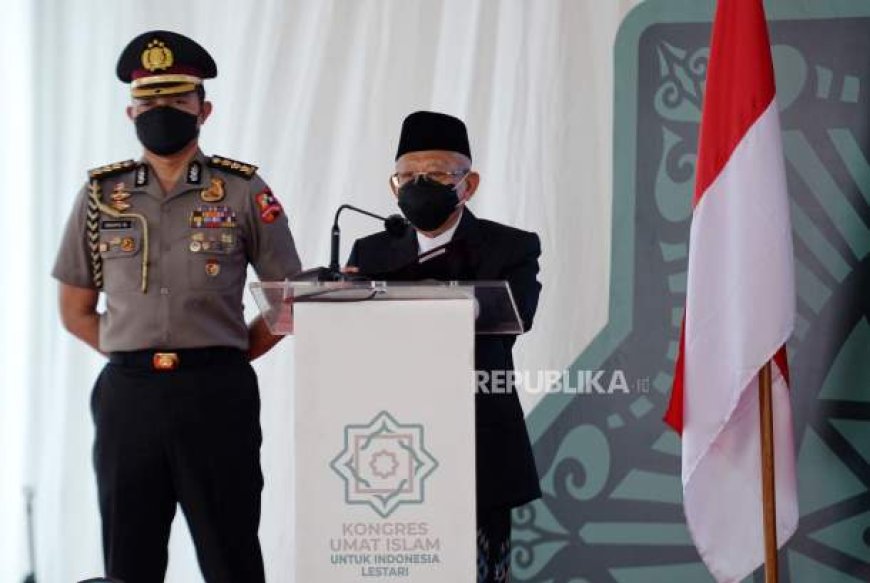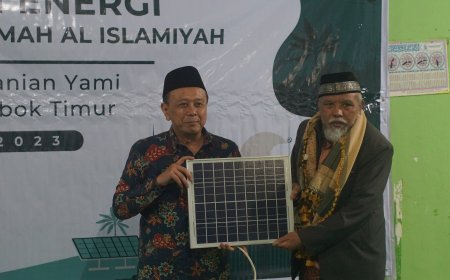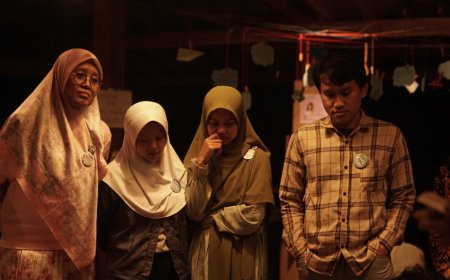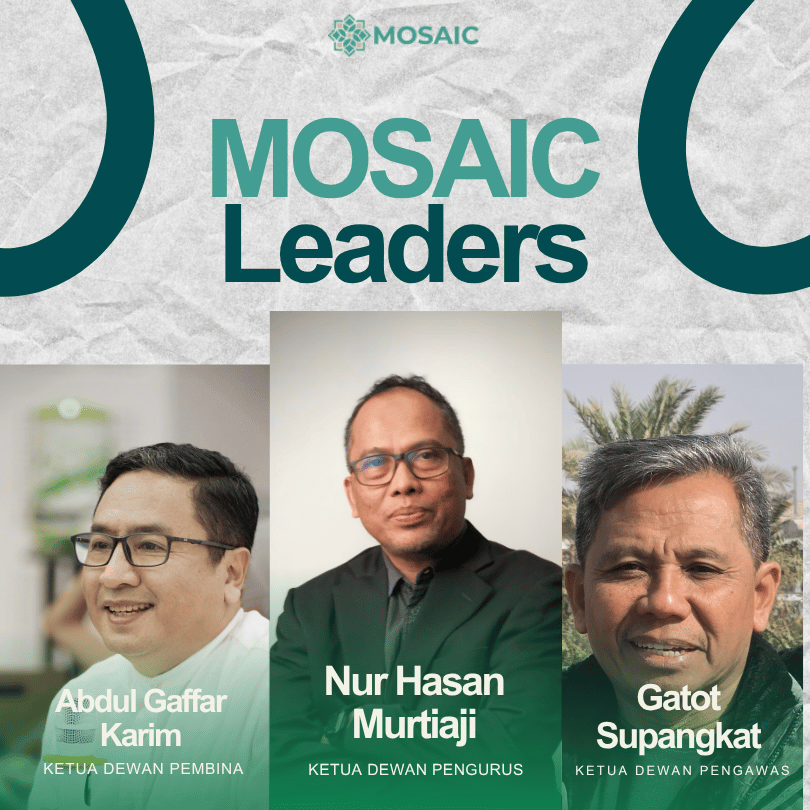Vice President: It's Time for People to Campaign for Environmental Issues
Environmental destruction is one of the strictly prohibited acts in Islamic teachings

Jakarta, wapresri.go.id — Climate change phenomena such as global warming are not independent of human negligence in interacting with the environment. Today environmental damage has occurred almost worldwide and is the cause of an increasing number of hydrometeorological disasters such as floods, landslides, and droughts.
Therefore, Vice President K.H. Ma'ruf Amin appealed to scholars and Muslims to contribute to socializing issues related to environmental damage to the wider community and to take real action to prevent it.
“I appeal to scholars and Muslims, to be expected to play an active role to be able to raise issues related to environmental damage. Then we will take more concrete actions,” the Vice President stressed during a keynote speech at the Congress of Muslims for Sustainable Indonesia at Jakarta's Istiqlal Mosque on Friday (29/07/2022).
Because, the Vice President said, the destruction of the environment is one of the acts strictly prohibited in the teachings of Islam. According to him, Islam teaches its people to take advantage of what is on earth for the benefit and welfare of mankind, but also forbids its people to carry out destruction on the earth.
“Therefore, Muslims are obliged to avoid acts that can cause damage to the earth, whether physical damage (façad maddi), or non-physical damage (façad maknawi),” he said.
Thus, given the crucial problem of environmental damage, the Vice President added the principle of “safeguarding the environment” as part of the goals of Islamic sharia (maqasidus-sharia), which has so far only been established 5 principles by scholars, namely safeguarding religion (hifzhuddin), safeguarding the soul (hifzhunnafs), safeguarding reason (hifzhul-aql), safeguarding descendants (hifzhun-nasl), and safeguarding map (hifzhul-maal).
“In my opinion, this requires the addition of two more things: maintaining security and peace (hifzhul amni wassalam) and maintaining the environment (hifzhul-bi'ah). Maybe these two things could be included in one of the five principles above, but in my view because these two things are so crucial to the current situation such as the Russia-Ukraine war and the environmental damage that gave rise to the energy crisis and the food crisis, even the financial crisis as it is happening today,” he said.
Furthermore, Kiai Ma'ruf said that so far the Government has been committed together with other countries in efforts to reduce carbon emissions through the Nationally Determined Contribution Road Map of 2019 and the long-term strategy of developing low-carbon climate resilience in 2050.
“In addition, Indonesia as the G-20 Chair in 2022 has raised the issue of climate change with emphasis on climate resilience scales, efforts to reduce carbon emissions, and green technologies,” he said.
He hoped, with international commitment and collaboration, efforts to tackle climate change can proceed better.
“Of course, in addressing this issue of climate change, the Government cannot work alone, it requires the involvement of wider stakeholders, including academia, business, mass media, and the Muslim community in particular to work collaboratively so that this phenomenon of climate change can be well anticipated,” he concluded.
Earlier, Republika Editor-in-Chief Irfan Junaidi reported that there are three (goals) to be achieved from the implementation of the Congress of Muslims for Sustainable Indonesia. The first is to raise awareness among the public, especially Muslims, that the responsibility to preserve the environment is a responsibility that must be shared.
“Then the second goal is to internalize Islamic teachings that address the environment. We firmly believe that in the Qur'an and the Hadith there are orders to us not to damage the environment,” he said.
The third goal, Irfan said, is to realize the joint work of all stakeholders in efforts to preserve and prevent environmental damage. “Hopefully the event is in line with what was expected,” he hopes.
The Congress of Muslims for Indonesia Lestasi gathered a number of collaborators to discuss and answer the challenges of climate change that triggers various weather anomalies. Collaborators consisting of the Indonesian Ulama Assembly (MUI), the PP Muhammadiyah Environmental Assembly, the Nahdlatul Ulama Disaster and Climate Change Management Institution (LPBI NU), DPP UGM, NGO Purpose, and Harian Republika have been organizing this initiation since February.
After a series of studies, discussions between Islamic organizations across entities and related parties, as well as listening and absorbing input from participants, the Congress of Muslims for Sustainable Indonesia delivered seven points of invitation to all Muslims in Indonesia in order to achieve a Lestari Indonesia.
The seven points of the solicitation are as follows:
- Global climate change has been going on for a long time. The crisis it caused was real. But it is still not understood and optimally addressed by Muslims. Therefore, it is necessary to communicate strategically and in line with the understanding and interests of the Ummah through various Islamic studies.
- Islamic religious leaders and Muslim figures should take a leading role in efforts to deepen the substance of Islamic studies, communication and education to the Ummah. The aim is to assert a wedge between the climate crisis with faith and religiosity on a consistent basis.
- Climate change has impacted entire sectors of people's lives, thus requiring solutions based on Islamic values, rooted in local wisdom and carried out systematically, according to local needs and contexts.
- Strong collaboration between Muslims is needed to take initiatives and support real policies aimed at tackling climate change, through partnerships with governments and other sectors.
- Vulnerable groups such as young people and women should be encouraged to play a leadership role in managing and organising climate change solutions.
- In efforts to mitigate and adapt climate change, the financing of sharia and other religious social funds (e.g. infaq, shodaqoh, and waqf) should be used.
- Islamic religious institutions, ranging from mosques to Islamic educational institutions (including boarding houses), should develop eco-friendly insights and behaviors and provide strategic spaces for developing studies, initiatives, implementations, and innovations for Muslims to become actively involved in climate change action.
Setwapres) (https://www.wapresri.go.id/hadiri-kongres-umat-islam-untuk-indonesia-lestari-wapres-serukan-ulama-dan-umat-islam-lakukan-aksi-nyata-cegah-kerusakan-lingkungan/)







